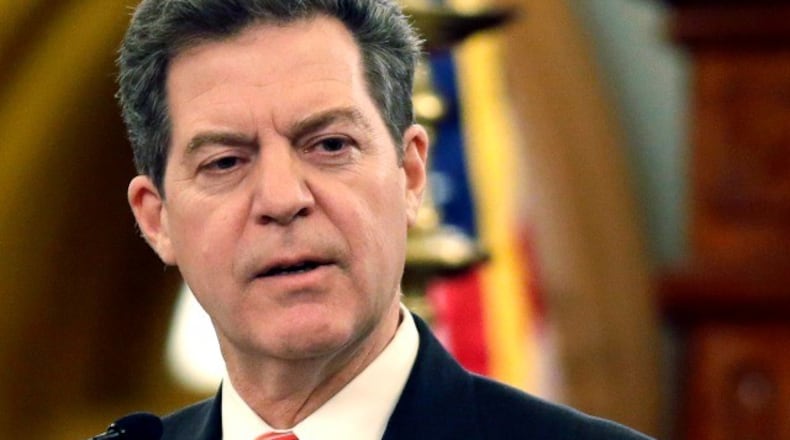Move aside, Alabama, it seems that you've got company.
Out in Kansas, Gov. Sam Brownback turned back time Tuesday by rescinding a longstanding policy that barred state government from discriminating against or harassing gay, lesbian and transgender employees. The policy had been in effect since 2007, when it was implemented by then-Gov. Kathleen Sebelius.
As a result, state employees in Kansas can once again be fired simply for being gay, with no legal recourse or protection. Supervisors can once again refuse to hire gay Kansans for jobs that they could do just as well as anybody else.
In announcing his decision, Brownback employed the classic if nonsensical "special rights" argument, saying that it "ensures that state employees enjoy the same civil rights as all Kansans without creating additional ‘protected classes’ as the previous order did.” If such protection is granted, he said, it should be granted by the state Legislature, although he made no mention of supporting such an effort.
The logic of the "special rights" argument has always escaped me. In the Kansas example, I suppose that no one now has "special rights", because thanks to Brownback, straight people and gay people are at equal risk of being fired for being gay. As Barbara Shelly writes in the Kansas City Star, "Brownback is imposing a harsh, intolerant regime on a state that used to value fair-mindedness."
But let's put things into context. Brownback's move has drawn national attention because it is perceived as a step backward, withdrawing protections that have been in place for years now and making gay state employees into a target. It comes across as petty, mean and gratuitous, and it is all those things.
But the truth is that here in Georgia, as well as nationally, no law or policy prevents discrimination on the basis of sexual orientation. We came close to passage of federal legislation back in 2007, shortly after Democrats regained the House of Representatives. The House passed the bill 235-184, with 35 Republicans voting with the majority. However, a filibuster in the Senate blocked further progress, and then-President George W. Bush had promised to veto the legislation anyway should it reach his desk.
We came close again in 2013, but this time the roles were reversed. This time, the Senate passed the Employment Non-Discrimination Act by a vote of 64-32, with 10 Republican senators voting in favor of its passage. (Both Georgia senators of course voted against it.) However, the Republican-led House then refused to even bring the bill up for a vote, and once again it died.
Given that background, Brownback's decision looks less shocking because it reflects mainstream Republican thinking on the issue. They may not openly advocate the firing of gay people merely for being gay, but they continue to fight hard to preserve the legal right to do so. It's a freedom thing, supposedly. As the conservative group Focus on the Family explains, banning discrimination against gay Americans "will harm American businesses and jeopardize the historically protected First Amendment freedom of religious expression."
Religion and freedom are hallowed values in this country, but in this debate they are being used to disguise something that is far less admirable.
About the Author
Keep Reading
The Latest
Featured


